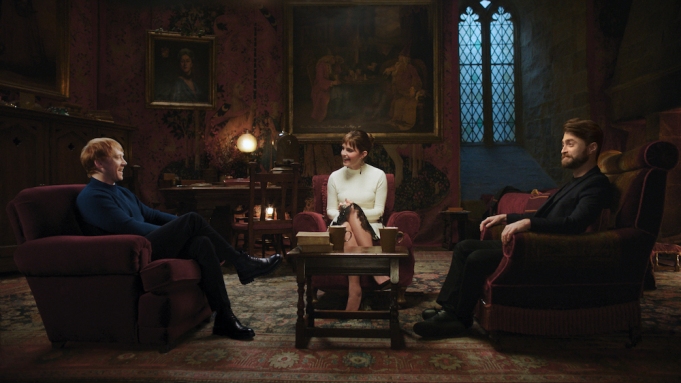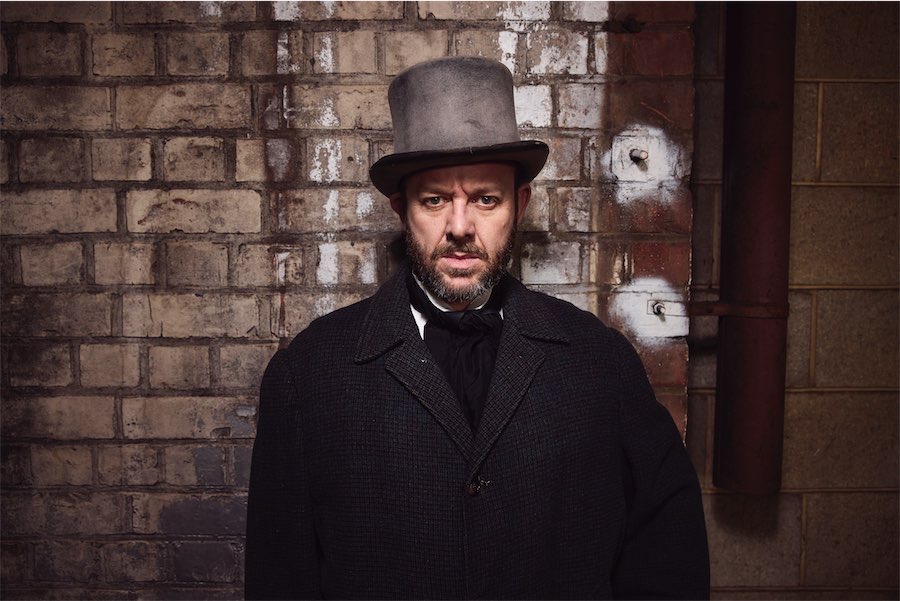
A new documentary reunites Harry, Ron and Hermione to reflect on their time with the multi-billion dollar franchise; is that a bad thing, asks streaming columnist NICK OVERALL.
DON Draper from “Mad Men” once likened nostalgia to a liquid, one that’s “delicate, but potent”.

By that analogy, entertainment companies have it securely bottled up, running on conveyor belts, and are selling it en masse to audiences through an endless stream of reboots, reunions and remakes of hugely popular franchises.
There’s been a “Friends” reunion on Binge, Disney+ have given the world more of the iconic “Star Wars” bounty hunter in “The Book of Boba Fett”, Netflix has dropped a fourth season of “Cobra Kai”, which revisits the ‘80s hit “The Karate Kid”, and all this is even more omnipresent in cinemas.
Last year the trailer for “Spider-Man: No Way Home” broke the Guinness World Record for most online views in a day with an absurd 355 million clicks.
That happened when it revealed that characters from the Tobey Maguire and Andrew Garfield Spider-Man films would return for this newest iteration.
It was inundated with comments from people ecstatic that, for just a few precious hours, they’d be able to relive some of that blissful excitement of their childhood.
All that’s not even to mention “The Matrix: Resurrections” also currently in cinemas or Tom Cruise putting the aviators back on for a “Top Gun” reboot next year.
Now, it’s “Harry Potter” that’s got the treatment.
A new documentary streaming on Binge reunites Radcliffe, Grint and Watson, or as they’re better known, Harry, Ron and Hermione, to reflect on their time with the multi-billion dollar franchise.
They’re joined by a batch of other cast members in some of the iconic original sets from the film.
It comes as the first movie in the series, “The Philosopher’s Stone” celebrates 20 years since first hitting cinemas.
It’s no secret these reunions are crowd pleasers, nor that the space they’re taking up in the entertainment world shows no signs of slowing down.
But is that a bad thing?
Don’t get me wrong; I was there on opening day of the new “Spider-Man” film, and even as a casual “Harry Potter” fan enjoyed reliving some childhood in the reunion special.
But how far does it go?
It’s easy to see the trend becoming a creative ouroboros; a ceaseless cycle of rebooting and remaking that leaves little room for investment in unique voices and ideas.
This poses a danger, not only for the stifling of creativity in the industry but also for the merit to be found in some of these nostalgia trips themselves.
Where’s the fun revisiting familiar favourites, if everything else is already a familiar favourite?
There are signs that complete domination by established franchises might not become the norm though a bright pink, South-Korean one comes to mind.
Netflix’s “Squid Game”, a totally original property, not only became the most watched television show in dozens of countries last year, it did it without being Western.
Within weeks its tracksuit-clad characters had pierced the pop-culture zeitgeist like a hot knife through butter and its signature visual style has become recognisable throughout the world.
Another similar example is “Parasite”, which took the world by storm in 2019 and was awarded the year’s best picture at the Academy Awards.
“Once you overcome the one-inch tall barrier of subtitles, you will be introduced to so many more amazing films,” said director Bong Joon-ho upon receiving one of his many accolades for the film.
“Parasite” is too unique to get down to a sentence-or-two description.
Self-described as a “family tragicomedy”, it’s a fun, yet darkly sincere examination of the class struggles of South Korea.
It can be streamed on Stan, and as of this month can also be watched for free on SBS On Demand.
“Parasite” pulls off a remarkable balance. It’s a deeply focused exploration of an important topic while not trading out the pacey thrills that general audiences go to the movies for.
And unlike popular franchises, the extent of creativity, and entertainment in a treat such as “Parasite” can’t be understood until audiences take a punt on it.
What it and, more generally, “Squid Game” show hope for though, is that audiences do indeed want the unique, the foreign and the original in large-scale entertainment.
That’s encouraging, because while it’s great to have those big releases to revisit childhood, it’s also important that they don’t come at the expense of productions that have the potential of making entirely new memories as well.
Like Draper said, that nostalgia may be potent, but it’s delicate, and it’s starting to get diluted.
Who can be trusted?
In a world of spin and confusion, there’s never been a more important time to support independent journalism in Canberra.
If you trust our work online and want to enforce the power of independent voices, I invite you to make a small contribution.
Every dollar of support is invested back into our journalism to help keep citynews.com.au strong and free.
Thank you,
Ian Meikle, editor




Leave a Reply